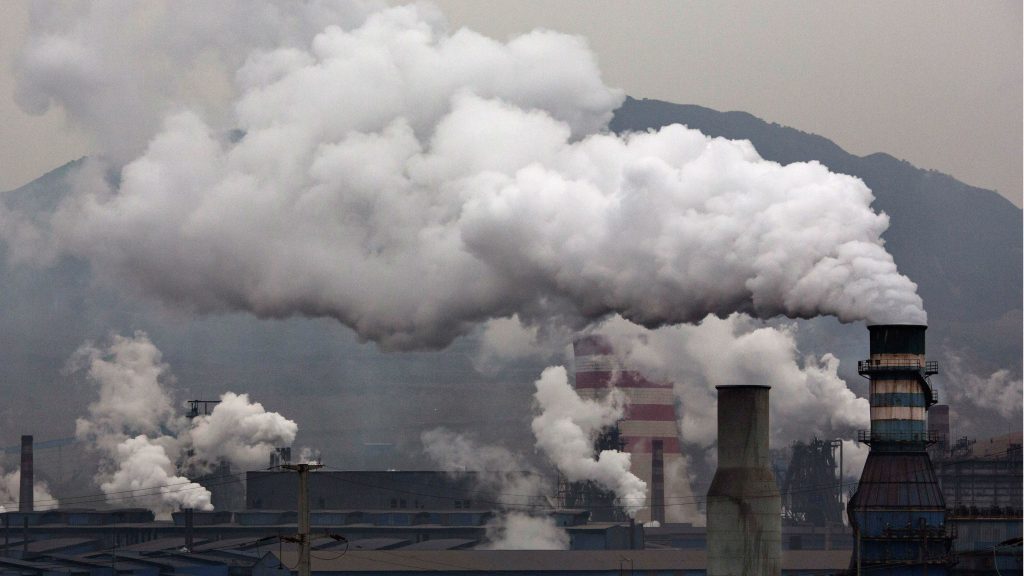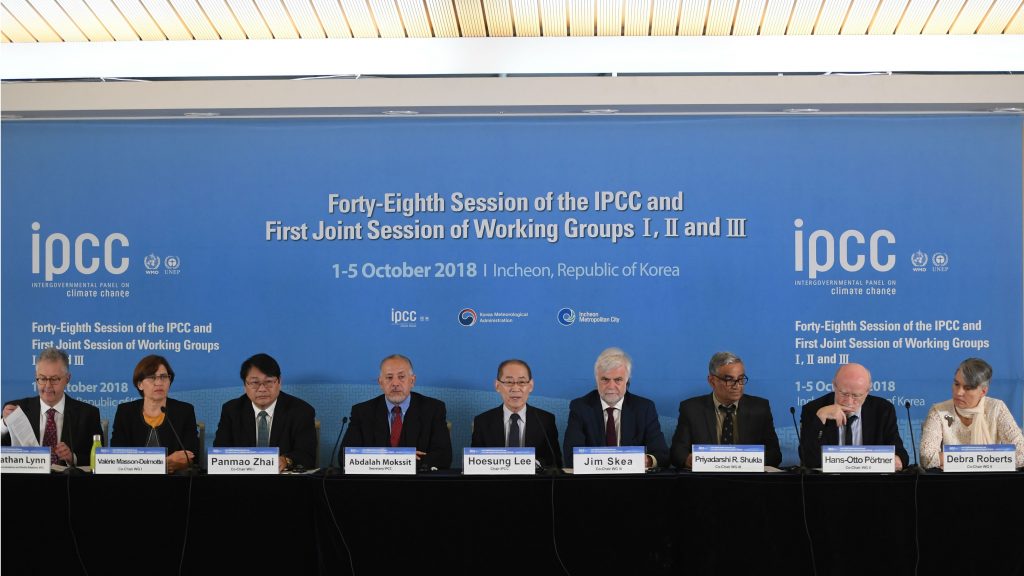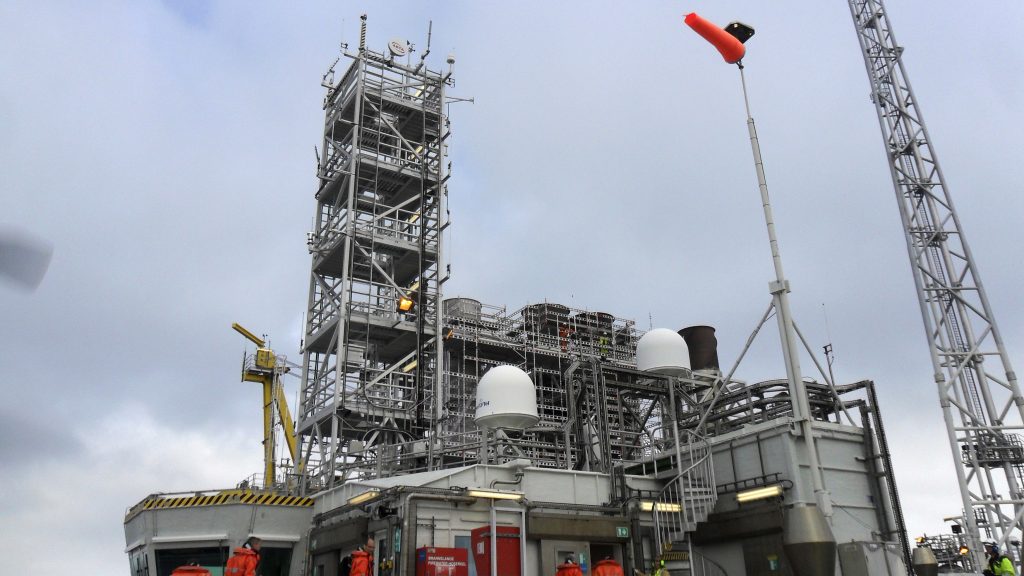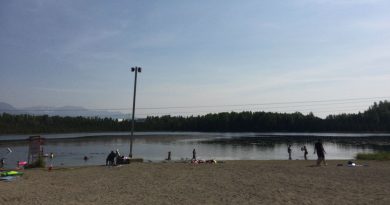Arctic ecosystems face irreversible change without fast climate action, UN report says

UN Climate Panel tells world leaders to take far-reaching and unprecedented action to avoid irreversible changes to life on planet earth.
“The next few years are probably the most important in our history”, says Debra Roberts. She is Co-Chair of the United Nations Intergovernmental Panel on Climate Change (IPCC) which, on Monday, published its report with a stark warning about the consequences of failing to limit global warming to 1.5°C.
The report outlines no doubts. “We are already seeing the consequences of 1°C of global warming through more extreme weather, rising sea levels and diminishing Arctic sea ice.”
While the Arctic has previously been considered an area where heating is twice as high as global average, the report now says the region’s warming grater than global annual average is two to three times higher.
That has dramatic impact on eco-systems. Isfjorden on Svalbard, which only two decades ago was categorized as a fjord with Arctic marine ecosystem is now more of an Atlantic marine life. The Northern Barents Sea around Svalbard may soon complete the transition from a cold Arctic to a warm and well-mixed Atlantic dominated climate regime, a science study published by the Norwegian Marine Research Institute earlier this year said.
Even 0.5°C makes huge difference
For the Arctic, the difference between a 1.5°C and a 2°C increase above pre-industrial temperature levels is dramatic. The Climate Panel report says it’s highly confident that the probability of an ice-free Arctic Ocean during summer is substantially lower at a global warming of 1.5°C compared with 2°C.
“With 1.5°C of global warming, one sea-ice-free Arctic summer is projected per century. The likelihood is increased to at least one per decade with 2°C global warming.”
“Every extra bit of warming matters, especially since warming of 1.5°C or higher increases the risk associated with long-lasting or irreversible change, such as the loss of some ecosystems”, says Hans-Otto Pörtner, another of the report’s co-authors.
Limiting global warming to 1.5°C as 195 nations agreed on in the 2015 Paris accord requires “rapid and far-reaching” transitions in land, energy, industry, buildings, transport and cities, the report says.
“Global net human-caused emissions of carbon dioxide (CO2) would need to fall by about 45 percent from 2010 levels by 2030, reaching net zero around 2050.”

The 91 authors and review editors from 40 countries that prepared the new climate report agree that any remaining emissions would need to be balanced by removing CO2 from the air.
The UN climate report recommends pathways to reach the 1.5°C goal in different scenarios. The most urgent measure is the rapid decarbonization of energy supply. Primary energy from coal must fall 78% by 2030 compared with 2010 consumption levels. Oil should be reduced by 37% by 2030 and by 87% by 2050. Over the next 12 years, total energy demand must drop 15% and renewables must rise to reach a 60% share of energy production.
“Limiting warming to 1.5°C is possible within the laws of chemistry and physics but doing so would require unprecedented changes”, says Jim Skea, Co-Chair of one of the Working Groups to the report.
Too late to turn the tide?
The question, though, is whether it is too late to reverse the dramatic impacts of climate change in the Arctic. A recent report from Roshydromet, Russia’s state agency on meteorology and environmental monitoring, leaves no doubt about the serious changes already unfolding in the Arctic parts of the country.
At latitudes of 70-85° North, the air was 2.7°C warmer than the annual average since measurements started in 1936. That includes the lion’s share of the country’s Arctic coast, as well as the major archipelagos like Novaya Zemlya, Franz Josef Land and the New Siberian Islands. On the mainland, infrastructure in areas like the Taymyr Peninsula is already affected.
Since 1998, the average temperatures in the Kara Sea areas have increased by as much as 4.95°C, the Barents Observer referred from the report.
Heated debate over Arctic oil

In Norway, the dramatic message from the new UN report sparks a heated debate about the country’s Arctic oil drilling. The environmental group Nature and Youth says Norway must start downscaling its oil and gas production immediately.
“This means the end for new oil and gas fields in Norway”, says Gaute Eiterjord, head of the youth group.
He claims the Government’s current climate policy pushed the planet towards 3°C warmer.
A few hours after the UN climate report was presented in South Korea, the Norwegian Government presented its 2019 State Budget to the Parliament in Oslo. Here, extra funding is given to expand the geological mapping of petroleum resources in the Barents Sea.
“Knowledge is crucial both for good resource management and to safeguard national economic interests. Therefore, it is important to continue the mapping of the petroleum resources in the Barents Sea in general, and in areas with possible cross-border resources in particular”, said Minister of Petroleum and Energy, Mr. Kjell-Børge Freiberg in a written statement after the State Budget proposal was made public on Monday.
Related stories from around the North:
Canada: Thawing permafrost in Canada’s Northwest Territories releasing acid that’s breaking down minerals: study, CBC News
Finland: Cities in Finland and Sweden among Europe’s fastest-warming, data shows, YLE News
Greenland: Glacier half the size of Manhattan breaks off Greenland, CBC News
Norway: Barents Sea ecosystem undergoing dramatic change, study shows, The Independent Barents Observer
Russia: Russian and American scientists team up to study Arctic Russia’s weakening sea ice, The Independent Barents Observer
Sweden: Feature Interview: Is Arctic climate research missing the big picture?, Eye on the Arctic
United States: New study predicts ‘radical re-shaping’ of Arctic landscape by 2100, CBC News




Read decade ago. Burn up the Arctic ice and you effectively turn down the air-conditioning on the whole planet.